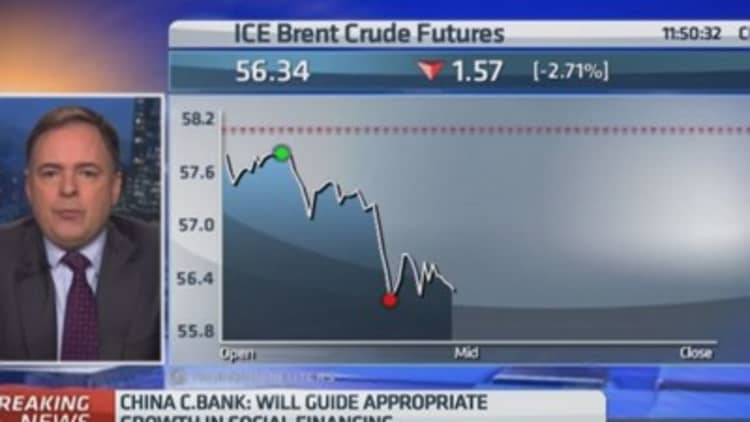Since the financial crisis, policy makers have been obsessed with growing levels of public debt. But as economic growth in the rich and developing worlds continues to disappoint, attention is shifting to the other side of the global balance sheet – the large cash piles corporations have squirreled away in the past decade.
Last week, Barack Obama, U.S. president, took aim at the more than $2 trillion in U.S. profits parked abroad by companies seeking to avoid paying taxes at home, proposing they should face a 14 percent levy. On the other side of the Atlantic, Mark Carney, governor of the Bank of England, spoke of the need for fiscal policy in the euro zone to help "recycle" private savings, noting the currency union was failing to match the growing piles of corporate cash with profitable investment opportunities.
Central bankers in the world's richest economies have sought to discourage companies from saving more by slashing interest rates and launching asset purchase programs. But the prolonged era of cheap money has failed to slow the accumulation of large corporate war chests.

Research by Deloitte, the professional services firm, has shown that by the third quarter of last year the largest non-financial companies in the world had amassed $3.5 trillion in cash reserves, up from $1.8 trillion in 2005. U.S. companies held almost half of these cash balances, with those in Japan, France and the UK owning 13 percent, 7 percent and 6 percent respectively.
For governments seeking to harness those resources, another possible tool is the tax system. Tax experts say changes to existing laws could encourage companies to invest more, pay higher wages or distribute cash to shareholders via higher dividends.
Read MoreAustralia central bank acting like it 'just woke up'
In the U.S., the key option would be to eliminate the arrangement of taxing repatriated profits from foreign subsidiaries rather than allowing companies to simply pay taxes locally. In the U.S. they face a federal corporate income tax of 35 percent. "The U.S. really has a competitive disadvantage," said Giorgia Maffini, a researcher at Oxford university's Center for Business Taxation. "The current system explains why a lot of innovative companies leave their cash abroad".
In 2004, the U.S. sought to lure some of the funds home by passing the Homeland Investment Act. This allowed companies to repatriate foreign earnings at a reduced effective tax rate of 5.25 percent for two years as long as they channeled those funds into investment, job creation or paying down debt. Yet despite the rules, while more than $360 billion in earnings was repatriated, the majority was used for share buybacks rather than investment.
Countries could also increase depreciation allowances, although the risk is that the freed-up funds would not be channeled into productive investment.
More from The Financial Times:
Oil 'contango' puts profit in storage
Yahoo: Identity crisis
Bermuda snubs Cameron company register plan
"What is it that you are trying to achieve?" asked Clemens Fuest, a professor of economics at the University of Mannheim. "If you want a short-term boost in demand, then increasing the depreciation allowance is good. But this policy may not always be wise if you want to make good long-term investment decisions."
Some policy makers have gone further. Last year, South Korea adopted a punitive tax regime for large companies holding vast cash piles. Corporations with more than Won 50 billion ($46 million) in capital will pay a 10 percent surcharge in corporate tax unless they have spent a certain proportion of the income on dividends, investment and wages.
The policy is aimed at reversing a longstanding issue with South Korea's chaebol, or conglomerates: an unwillingness to distribute generous dividends, which is one of the causes of the relatively low valuation of Korean companies.
The move seems to have had some success, with corporations such as Samsung Electronics increasing dividend payments and investment. "In the past you had foreign investors telling Korean companies that they had to boost payments," says Shaun Cochran, head of South Korea at CLSA, a bank. "What you are seeing now is Koreans telling Korean companies they need to pay more. It is a change of culture."
But economists are skeptical that the measure offers a model for other governments. "It is an overly complicated system that would add a further layer of complexity to tax law," says Prof Fuest. "Governments have other options to encourage investment. For example, removing uncertainty over future regulation can be key to getting companies to spend more."

